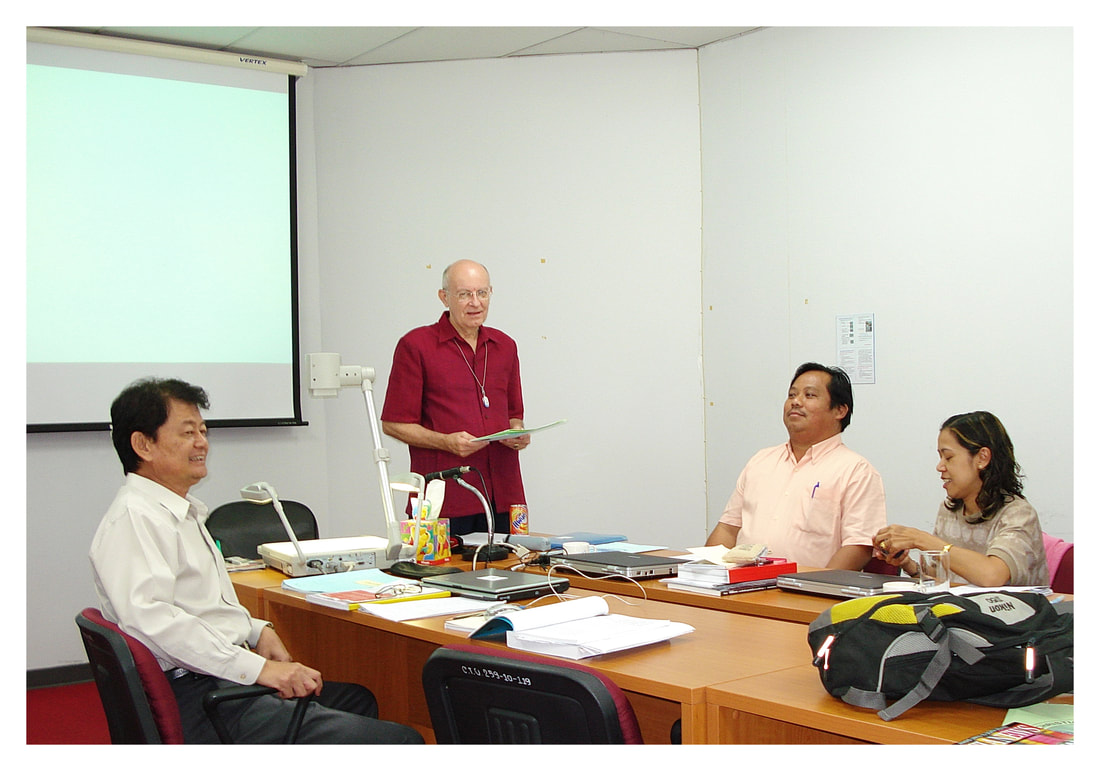|
WHAT SHOULD EDUCATION DO?
The short answer is EDUCATION SHOULD DEVELOP PEOPLE HOLISTICALLY. A person is made up of 4 aspects. A person is: PHYSICAL MENTAL SOCIAL EMOTIONAL People are also individuals, with differing natures and different talents. One educational model does not fit everyone. The goal of education cannot be the same for everyone But formal education is practical. It must be designed to do what it can do 1. Education studies COGNITIVE REALITY The practical purpose of education is to help us acquire accurate data and develop understanding. Education begins before we are born. Pre-natal education is important. Then comes discovery through having needs met. We begin cognition by acquiring bits of information and compiling them into patterns. Then we proceed to figure out what to do with our understanding. Education is an on-going lifelong undertaking. Some types of education are better done at specific stages of life. But we learn and keep learning from before we are born until we die and beyond. Cognitive Knowledge · Cognitive knowledge is the main type of information that education tries to provide. · A large part of knowledge is genetic, intuitive or imparted through socialization. · But there comes a point at which curiosity and necessity require more intellectual input. · Formal education starts with training about how to access knowledge and how to hold onto it (reading, recitation, writing, counting, and remembering social rules). · Formal education gradually becomes more refined with goals about what we ought to KNOW and SUBJECT AREAS which describe and impart essential content of that knowledge. 2. Tools and skills that are educational As human beings we are “educated” by our genetics, intuition, and perceptions. For the most part it is only our perceptions that can be developed intentionally. So education has identified traditional areas to work on. Necessary skill areas: A. Language and communication B. Math and science C. Art and music D. Literature and culture These skills are inter-disciplinary. That is they are useful and sometimes essential for all sorts of activities. Examples: MUSIC: learning to play a musical instrument involves every one of those skill areas. SPORTS: athletics are impossible without physical, mental, emotional and cognitive practice. COOKING: all cooking is a cultural, scientific, and highly artistic endeavor. 3. Education’s basic goals are about self-actualization Basic formal education involves knowing one’s self, one’s society, one’s world, and one’s meaning. TO KNOW ONESELF Two subjects that are important for knowing one’s self are: BIOLOGY PSYCHOLOGY TO KNOW ONE’S SOCIETY Three subjects that one must study in order to know how one fits into the wider world are: SOCIOLOGY (including cultural anthropology) ETHICS (including law) HISTORY (including literature) TO KNOW ONE’S WORLD Two areas that are often overlooked but we now know are important are: ECOLOGY (environment, physical geography) COSMOLOGY (astronomy, astrophysics) TO KNOW ONE’S MEANING 1. With regard to THE SACRED 2. With regard to THE FUTURE (what we are here for, what our legacy might be) 3. With regard to THE ETERNAL Every educated person at the bachelor’s level should know the “essentials” about self, society, the world, and religion. A master of a field can teach others what they need to know about one of those subjects and how to acquire more knowledge about it. A doctor is one who can design, conduct and supervise research into unexplored aspects of that subject. 4. Satisfactory LEVELS OF ACHIEVEMENT How much education is enough for now? The idea is that if a person has initiation into these skills, the person will be able to use them to acquire knowledge independently, without direct supervision. Then the person will be functionally independent. The decision to continue or discontinue any program of education or self-development is ultimately up to the individual. Society, however, stipulates rewards and consequences for satisfactorily acquiring various levels of achievement. The personal issue becomes how one decides to function in society. When we move from “basic” to “specific” education we have moved from general self-improvement to vocational training. 1. Some of us resolve to function as a member of society and contribute to the welfare of your family and/or your personal fulfillment; work is how we make this happen. 2. Others resolve to provide civic service (as military; religious, political or cultural leaders; educators or health service professionals; etc.); family and personal life fit around that. FINALLY, PLEASE REMEMBER No matter what role you take, you are you. When circumstances change, you are still you. When you make good decisions, you are you and you had help. When you make bad decisions, you are not essentially diminished. Your core role as a human being is to infuse every encounter in your life with UNCONDITIONAL LOVE
0 Comments
Leave a Reply. |
AuthorRev. Dr. Kenneth Dobson posts his weekly reflections on this blog. Archives
March 2024
Categories |
| Ken Dobson's Queer Ruminations from Thailand |
|

 RSS Feed
RSS Feed
